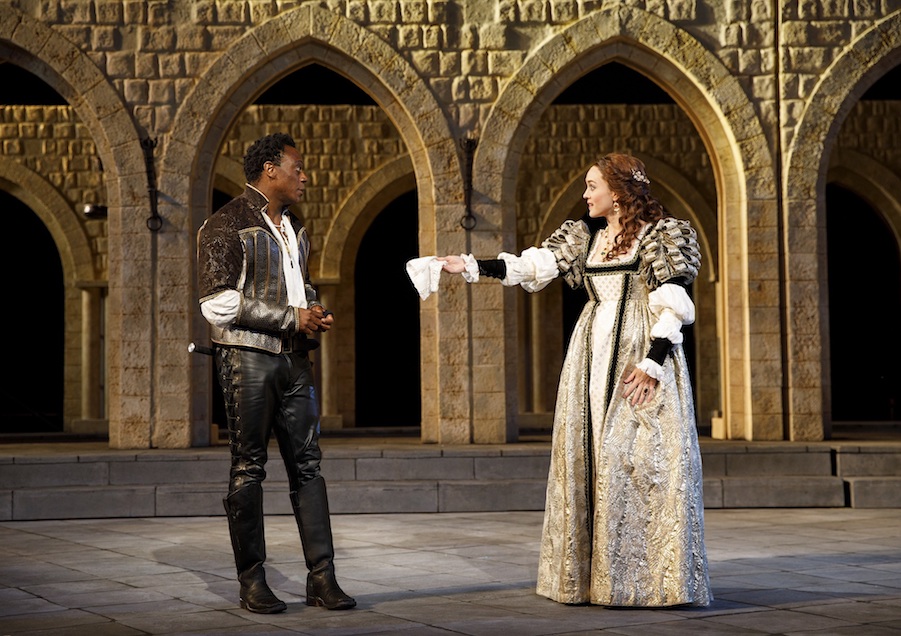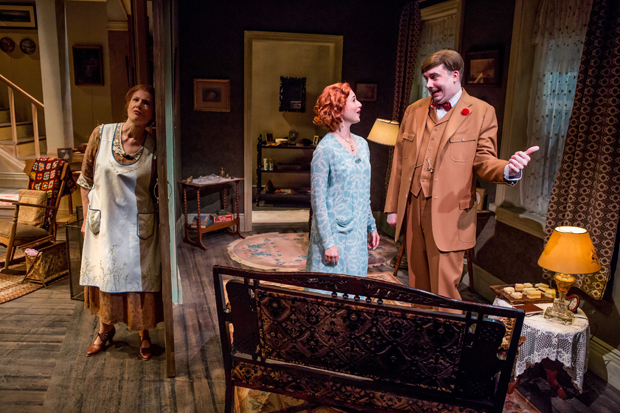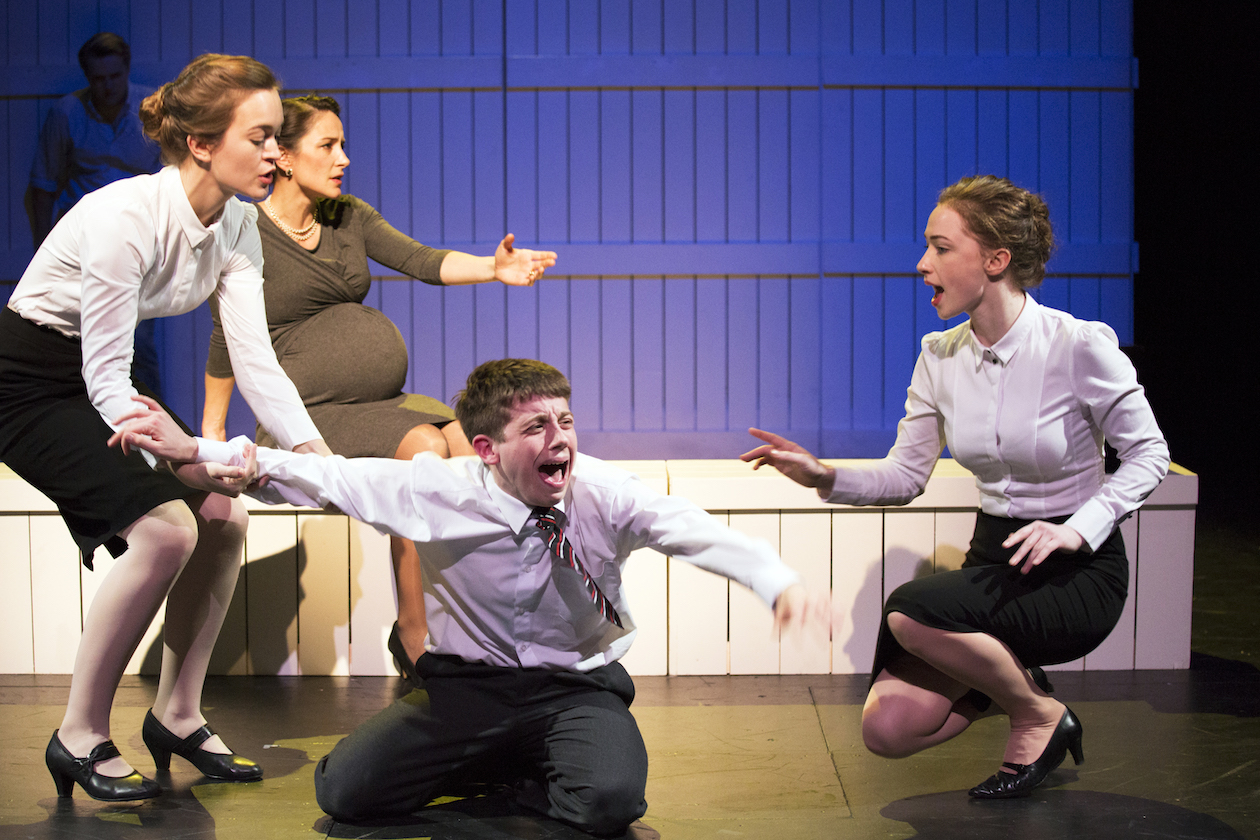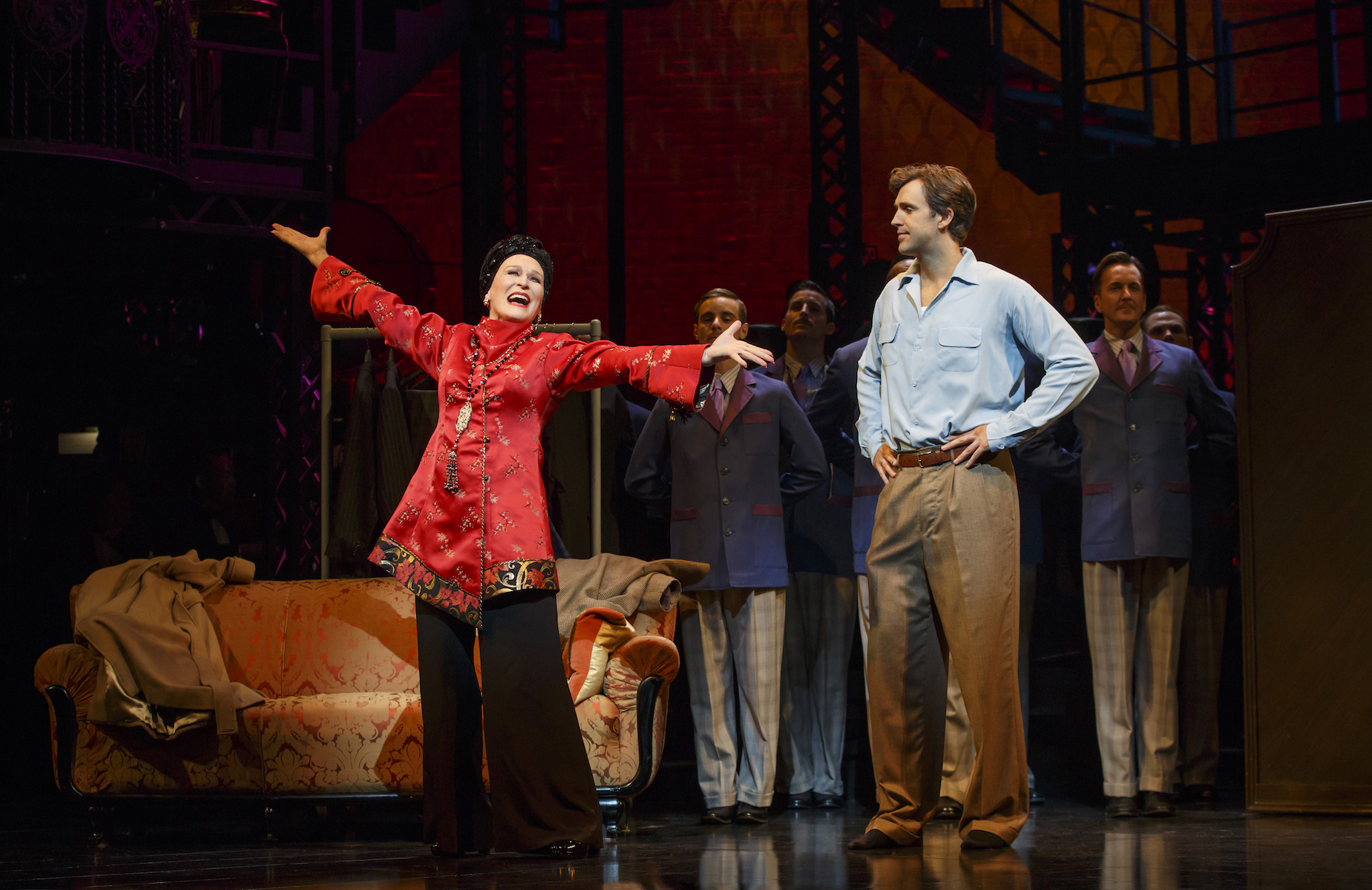
Chukwudi Iwuji, Heather Lind
by JK Clarke
On the heels of last year’s controversial (and totally misunderstood) social-commentary-tinged Shakespeare in the Park production of Julius Caesar, one could have easily expected the mounting of Shakespeare’s most racially charged play, Othello, Moor of Venice to follow suit. The painfully evident increase in overt racism in the United States (demonstrated almost weekly with videotaped incidents of gross bigotry everywhere from subway cars to parkside barbecues) sets the perfect stage for the tragic morality tale that is Othello. Theater has, since its inception, been a platform (not unlike the church) for social commentary and allegorical pleas for reasonableness and understanding. Othello itself was written, likely in 1602-03, in the midst of a racist purge—by Queen Elizabeth, no less—of black people. The Queen’s proclamation of 1601, in which she is said to be “highly discontented to understand the great number of Negroes and blackamoors which . . . are carried into this realm” demanded that “the said kind of people shall with all speed avoided and discharged out of this her majesty’s realms.” While London’s population at the time is estimated to have been over 250,000, the number of people in London described as “Negroes or blackamoors” was said to be less than 2,000. Baseless racism and the scapegoating of immigrants was as rampant then, and just rooted in ignorance, as it is now. To paint a tableau of the absurdity of 16th century racism on the stage would have been a perfect allegory for the insanity that is passing for policy in our country today.
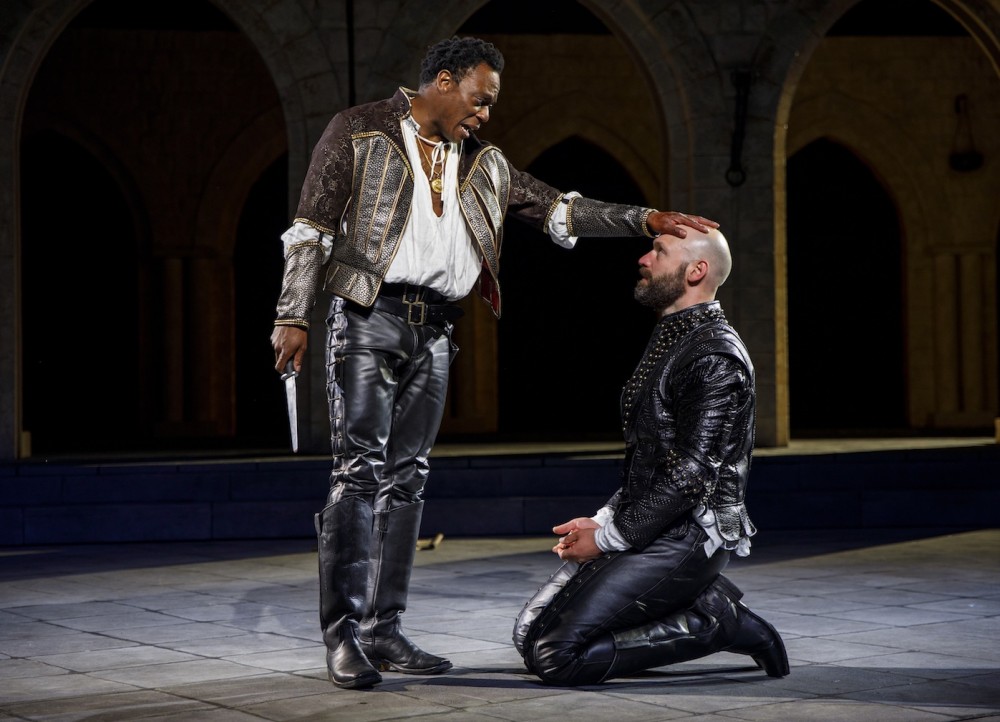

Chukwudi Iwuji, Corey Stoll
However, for whatever reason, director Ruben Santiago-Hudson chose to downplay the play’s racist angle, and in the process not only missed an opportunity, but blunted the edges of this devastatingly intense play. Othello is rooted in contrasts: of black and white (literally); of trust and betrayal; of older and younger; and of love and hate. In almost every instance, Santiago-Hudson stifled those differences. In the text, Roderigo (Motell Foster), who believes he’s competing for Desdemona’s love, is white. Othello (Chukwudi Iwuji, one of the most outstanding Shakespeare actors in the city) is black, and Roderigo blames his romantic failure on Othello’s skin color, overlooking the fact that Othello is an admired, accomplished and much heralded General. But Santiago-Hudson has cast a black actor in the role, subduing the hatred and obvious contrast between the two. This casting necessitates the elimination of some of the more bigoted lines, such as in Act I, Scene 1, when Roderigo utters the slur, “What a full fortune does the thick lips owe/If he can carry’t thus?” In this production “the thick lips” is replaced with “he,” totally altering the tone of the scene. What’s more, this Roderigo, for a variety of reasons, is more sympathetic and therefore less impactful in the role.
Iago (Corey Stoll), who may be one of the first Machiavellians portrayed in theater, despises Othello for his skin color as well as his class, and believes his race should disqualify him from those things Iago covets; but since it doesn’t Iago sets out to ruin him through horrifying deceit. However, Stoll’s Iago is frequently played for the laughs that are largely absent from the original play (in the full text there are two brief, virtually pointless comic relief scenes which are excised from most productions—as they are here) and apart from his deplorable actions, he is, astonishingly, an occasionally relatable character.
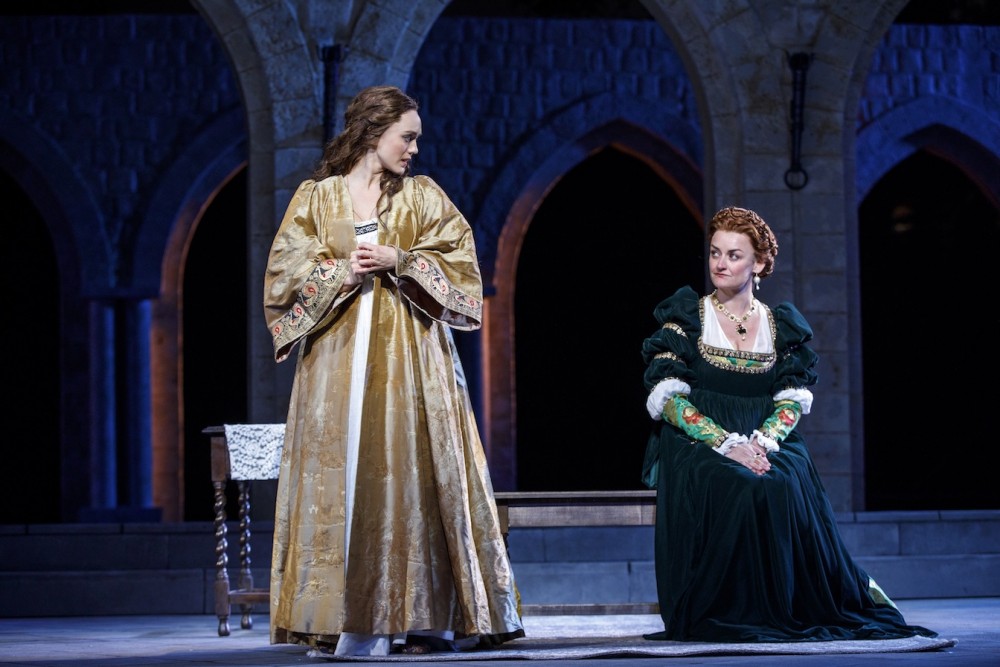

Heather Lind, Alison Wright
Finally, Desdemona (Heather Lind, who played the wily maid Katy in HBO’s Boardwalk Empire) and Othello lack the vast differences as written in the play. Here she’s less naive and considerably older than portrayed in the play (she likely would have been in her late teens). And Othello is less the much older (by at least a generation), seasoned General, still dwelling in his Moorish dress and traditions, rather than the dashing, handsome young man we see, one who is more evenly matched to Desdemona. When he becomes suddenly jealous of her it’s harder to comprehend than it would be if he were an older man with a very young, doting girl.
In the program notes, the Public’s venerable Artistic Director Oskar Eustis (who directed the aforementioned Julius Caesar that caused such an uproar and corporate sponsor flight), says that Santiago-Hudson sees this play “first and foremost as a love story.” Oh? That’s a bit like saying Hamlet is mainly about a depressed guy. One could, quite literally, say that every single Shakespeare play is primarily a love story, and said stories are usually interrupted by either something tragic or absurd. It’s hard to say what goes on between artistic director and director, but I find it difficult to believe that Eustis would have chosen to downplay the social commentary for which this play is so ripe.
In any case, Othello is a play of passions: love, envy, hate, greed and, above all, jealousy. Here is the origin of the term “green-eyed monster” and here, ultimately, is a horrendous tragedy about a man who is tricked into strangling his wife. Perhaps the most downplayed aspect in most Othello productions is that side-by-side with the readily acknowledged racism and bigotry is an unhealthy dose of misogyny. Yet another theme that could have been amplified in this production to address the issues of the day.
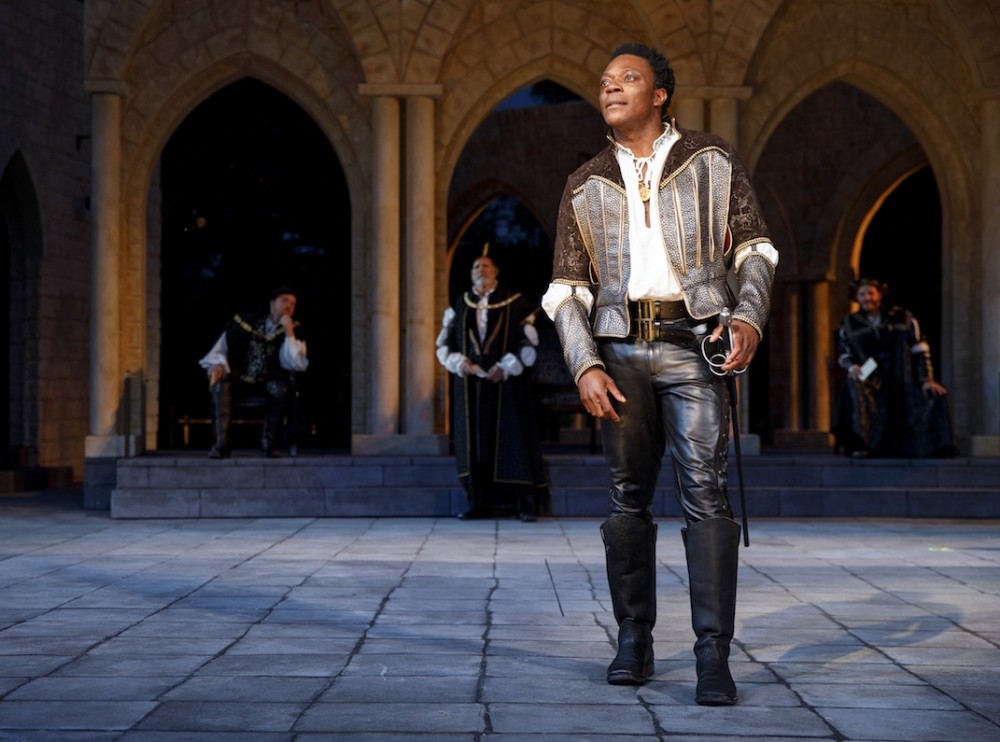

Chukwudi Iwuji
Lost in the disappointment of all these suppressed messages and/or themes is a production that was largely outstanding. Though victimized by directorial decisions, Iwuji and Stoll are magnificent, and Lind has brilliant flashes, especially as she sings “Willow,” her heartbreaking death knell, as she prepares for bed and the arrival of her murderous husband. Even more impressive are Toni-Leslie James’ stunningly beautiful Elizabethan costumes, blending perfectly with Rachel Hauck’s simple, yet beautiful and versatile set consisting of Arabesque castle walls, lit perfectly by Jane Cox, representing varying times of the day. We experience sunrise, sunset and midday shadows and color shifts falling convincingly along the stone ramparts. As a visual tableau, it doesn’t get much better than this.
If it were The Public’s intent to stay out of the spotlight and not invite controversy (or lose sponsors) as they did last year, then it would have been wise to choose from among three dozen other Shakespeare plays rather than deflate the uncomfortable messages in Othello. Had they not been so reluctant, this could have been an Othello for the ages. Instead, it’s a visually appealing play that, while overlong at nearly three hours (if they’re going to cut critical lines, why not cut extraneous scenes?), drags in parts and alienates audiences not intimately familiar with Shakespeare’s language and style. And, for better or worse, it probably won’t be in the papers.
Othello. Through June 24 at The Delacorte Theater (In Central Park, at West 81st Street and Central Park West). Two hours, 50 minutes with one intermission. www.publictheater.org
Photos: Joan Marcus


